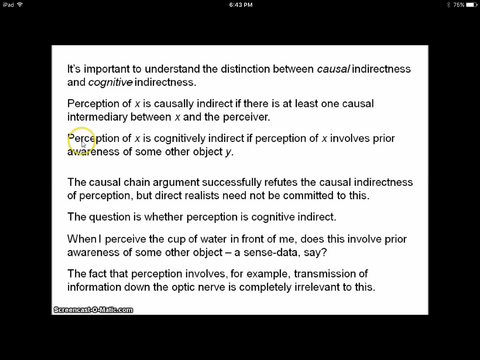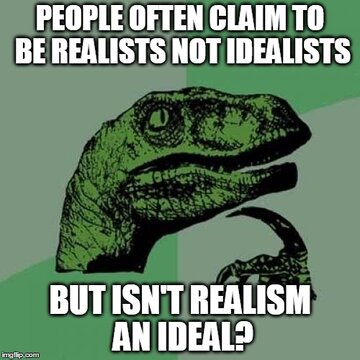Again direct vs indirect turns on whether you perceive the world or perceive sense datum...
And I wonder if this turning is a matter of semantics. And I don't say that dismissively; I say that sincerely.
I think it hinges on how one defines "perceiving." In my way of thinking, perceiving is a kind of experiencing. Likewise, hallucinating is a kind of experiencing. And dreaming is another kind of experiencing.
What is the difference between these three kinds of experiencing? In all three of these kinds of experience, we seem to be a subject perceiving a vibrant world.
I think this is important bc in the video, during the discussion of hallucination, Kane says we could say instead of "perceiving" sense data we perceive brain states. He says this is just as bad for the DR as perceiving sense data. So it's no good.
So instead he says that hallucination is when we misperceive the world.
To me this is all a silly, semantic mess.
See below:
Basically I think he argues color is objectively "out there" as a particular object under the same conditions produces the same color in the same organism, whether "green" or "blue" - it's not in the observer's head.
He says color is objectively out there... but then says two diff organisms, human and alien, could see the same object as different colors, green and blue.
This is incoherent. If the object was objectively colored, say, X, and we perceive reality directly and pretty much as it is, how is it okay for us to see this X colored object as green and the alien to see it as red, or us to see it as red and the alien as green.
If two organisms see the same objectively colored object differently, then the difference must be in the organism. Then it follows that saying we perceive the world pmaii, is meaningless. We don't perceive pmaii, we see it in a uniquely human way. And that's ok.
The point I'm trying to make is, based on Kane's video, teller difference between DR and IR is so minuscule as to be meaningless.
If sense data is essentially the same as brain states, and brain states are causally necessary and indirect, it's a matter of semantics to "say" we perceive brain states or we perceive the world.
We don't
perceive brain states; we perceive the world via brain states.
Imo that's what the difference between IR and DR realism boils down to; a semantic quibble over the meaning of perceive. To perceive brain states or to perceive via brain states.
Both IR and DR say there is a real, external world, we perceive it subjectively, brain states are involved, two different organisms will perceive reality differently. (And both approaches are comfortable saying we perceive reality pmaii. And in my opinion, that's a very dubious claim.)



